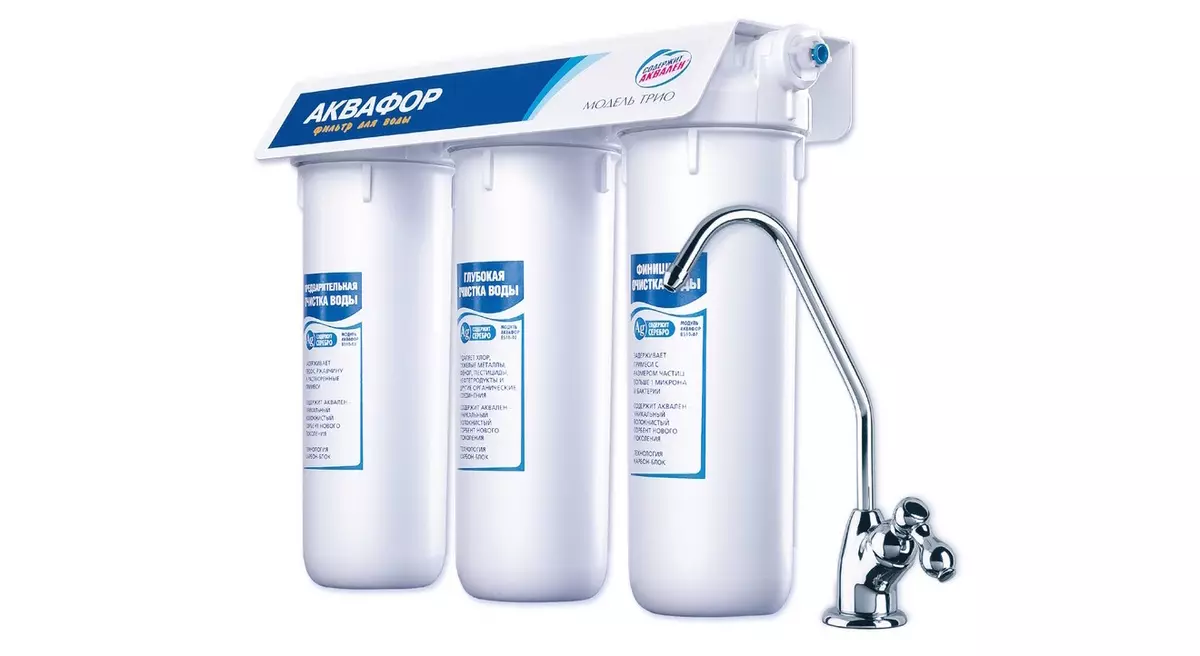Manufacturers of funds against scale are often frightening users with pictures, hopelessly spoiled. We tell why hard water behaves so aggressively towards boiler and washing machines and which there are ways to deal with her.


Photo: OBI.
What is the rigidity of water
The term "hard water" means water in which alkaline and alkaline earth metal salts are susceptible. This may be chlorides (for example, a well-known salt salt, sodium chloride), sulfates, carbonates (carbonic acid salts). A special role is played by carbonate stiffness, due to the presence of calcium and magnesium salts in the water. These salts have features - when heated, they decompose, forming an insoluble precipitate, carbon dioxide and water. This whitish sediment is well familiar to everyone. Sypt has an unpleasant property to form on the surfaces of the heating elements of washing machines, par-mooring systems, boilers and heating boilers.The plus of carbonate stiffness is that carbonic acid salts can be easily removed from water when it is boiling than we use, heating water into the kettle. Indeed, heating water to a boil, we get rid of carbonate hardness, and since the carbonates usually make up 80-90% of all dissolved salts, then we can assume that we get "clean" water. Although it is not. The remaining salts form a non-commissioned or constant rigidity, it is impossible to get rid of which heating is impossible. That is why boiled water is not distilled, completely purified from chemicals dissolved in it. Although at the consumer level it is possible to pay attention to this difference.
In the scientific literature, you can meet different units of stiffness. In Russia, rigidity is expressed by the sum of milligram equivalents of calcium and magnesium ions contained in 1 liter of water. One milligram-equivalent of rigidity corresponds to the content in one liter of water 20.04 mg / l Ca2 + or 12.15 mg / l Mg2 +. Abroad, the rigidity of water is measured in other units. For their mutual translation, you can use the following ratios: 1 mM-eq / l = 2.8 German degrees = 5 French degrees = 3.5 English degrees = 50 ppm (parts per million) in the United States.
How to deal with the rigidity of water
Hardness harms not only by heating elements of technology, but also negatively affects the efficiency of detergent operation and can negatively affect the taste properties of water. Hard water does not give foam with soap, it makes it difficult to wash. Therefore, it is desirable to clean drinking water from all types of rigidity, both soluble and insoluble. To this end, cartridge filters of different types and reverse osmosis systems are used when cleaning small amounts of water (liter or tens of water liters per day). And for the generalical cleaning, filtering systems are used based on low performance filters, up to several m3 per day.
It is possible to protect the washing machine from the scale of scale, however, and without any water purification. For this, it is enough just not to use programs in which water heating is over 60-70 C. Modern detergents and modern washing machines are perfectly dispensed at room temperature. Under such conditions, the washing scale does not threaten your washing machine.
Note that too soft water, from which all salts are removed, can also be dangerous for household appliances. In particular, soft water has elevated corrosion properties, the metal walls of pipelines and the parts of the heating and water supply systems destroys the metal walls.
